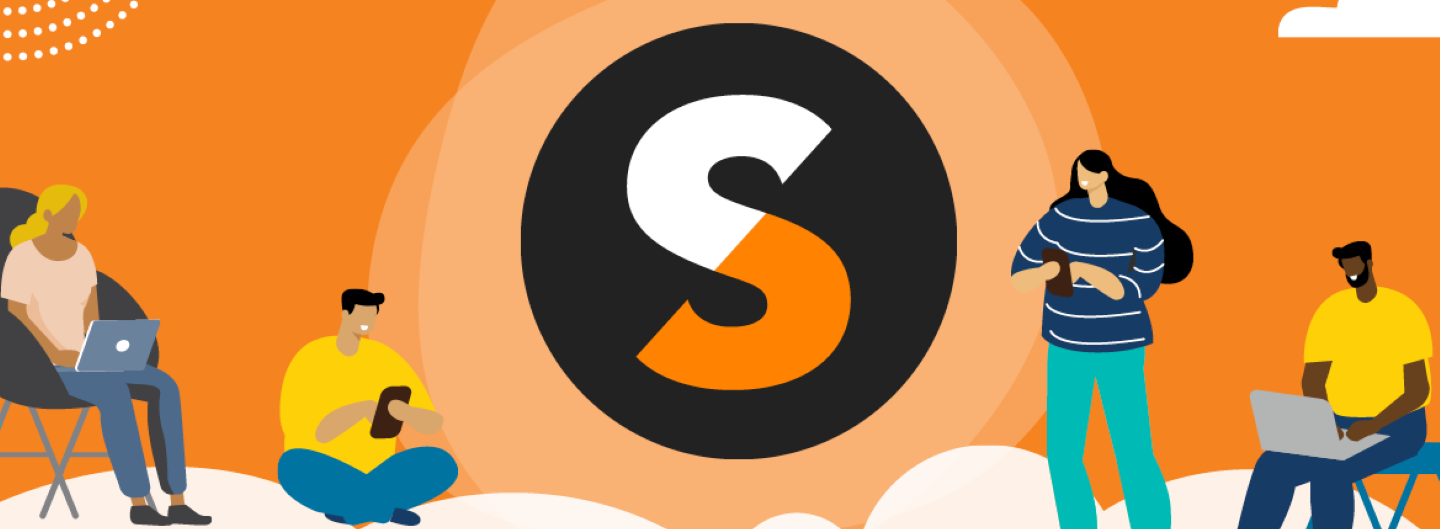Have you heard podcasts are the big thing? Have you thought about starting a podcast, but don't know where to start?
When many people consider starting a podcast, they only think about building an audience. But that's not necessarily what it's all about. Great podcasts, especially podcasts for nonprofits, aren't just a matter of building a wide audience. In fact, that doesn't even have to be the main goal. In this post, we'll be sharing some valuable tips to get you started with podcasting at your nonprofit.

Four Benefits of Podcasting for Nonprofits
Let's take a look at a few ways podcasting can benefit your organization — even if you don't gather thousands of subscribers.
Podcasts Help Nonprofits Connect with Niche Groups
Through a podcast, a nonprofit can microtarget a specific group with specific interests and then leverage the podcast to speak to those interests. For example, the podcast Real Pink from Susan G. Komen (which I produce) focuses on speaking to people currently battling breast cancer and their support community. Doing this allows Komen to create content that will specifically meet the needs of that community.
Podcasts Help Create Supporters of Your Cause
People love to share great podcasts. That's because people engage deeply with the podcast format. Podcasts are easier to incorporate into everyday life than other content mediums. People can listen while driving, working out, doing chores, and even working.
This ability for flexible content consumption helps podcasts to be more sticky with supporters, encouraging them to engage more deeply. As a result, podcasting is a great way to build new supporters of your cause. These fans connect more authentically with your nonprofit through the podcast, and because of that connection, they are more likely to share that content — and your nonprofit — with others.
Podcasts Are Vehicles for Creating High-Quality Content — Quickly
Creating high-quality written content takes a lot of time. Writing takes time, and so do editing, rewriting, and gathering approvals. But verbal content can be created more quickly. You can record a podcast episode, upload it to a service like Temi or Otter.ai that will automatically transcribe it, do a quick review and edit of the transcription, and in a short time have both audio content and great, SEO-rich written content.
Podcasts Are Great for Internal Teams
Large teams can use podcasts as a way to stay connected. Internal podcasts are great for building culture, internal communication, onboarding team members and volunteers, learning and development, and reaching people away from their desks.
If an entire organization tunes into the same podcast on a weekly or monthly basis, this can greatly benefit your workplace culture and the extent to which everyone remains in sync with one another about the goals and mission of your nonprofit.
How to Start a Podcast at Your Nonprofit
Starting a podcast at your nonprofit is easier than you think. Here are a few steps you can take to get going.
1. Decide Why You Want to Create a Podcast
Are you trying to connect to a niche group, create supporters, create high-quality content, or something else altogether? Once you know why you are creating a podcast, you can determine the best podcast format for that purpose.
For example, if the goal of your podcast is to increase your supporter base, you will want to determine what kinds of podcasts your supporters like. Then you need to consider what topics your supporters will care about. Based on that information, you can start to choose a format for your podcast and map out what content you will want to create.
2. Decide on a Format for Your Podcast
There are many types of podcasts, but here are a few of the most common formats. One of these will likely work for you — or you can consider a hybrid model.
- Interview Podcast: Podcasts that have a regular host who interviews a different guest in each episode. These podcasts are easy and quick to produce, and because there is always a new guest with a different area of expertise or experience, they usually have a variety of content.
- Hosted or Co-hosted Podcast: These are podcasts that always have the same hosts who will talk about different topics in each episode. These podcasts rely heavily on having great hosts and require a little more preparation than an interview podcast.
- Narrative Podcast: This is a podcast that is telling a story. It may be journalistic or fictional. These podcasts are highly entertaining and engaging but are the most complex to produce.
- Repurposed Content Podcast: Most nonprofits have a lot of content that can be repurposed. With this format, a nonprofit will take existing content, such as a blog post or an article, and repurpose it as a podcast, exposing it to a new audience. For nonprofits with a lot of existing content, this will be an easy way to get into podcasting.
3. Determine Your Podcast's Brand
Think about how you will brand your podcast. What will people call it? Does it need to include your organization's name? As podcasts tend to take on a life of their own, I recommend that each one have a unique brand that complements your nonprofit's overall brand. For example, Real Pink is Susan G. Komen's podcast. Real Pink is its own brand (name), but the word pink ties it back to Komen because Komen is known for its pink ribbons.
4. Record and Launch Your Podcast
Next, start recording shows. Your first two or three will be terrible, so record them knowing you likely will never use them. It's best to have several shows recorded before taking your podcast live. It will help you get into a rhythm, and releasing more than one episode when you launch will allow listeners to listen to a few episodes in a row and get hooked.
Get Started Today
If you run a nonprofit that needs to connect with an audience in a deep way, or if you need to create high-quality content quickly, consider podcasting. Podcasting is already more accessible than you might think, and it's getting easier all the time. So, if you are inclined, even a little, give it a try and see how it works for you.
Additional Resources
- Watch the recording of our recent webinar on this topic.
- If you want to explore some other media, learn 10 Steps for Planning a Successful Webinar and How to Broadcast a Facebook Live Event in 5 Easy Steps.
- Learn how to use social media to spread the word about your podcast with TechSoup Courses' Social Media Marketing track.








